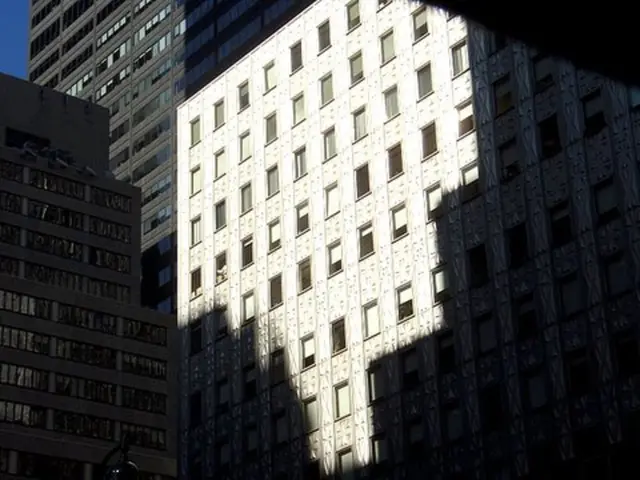Increase of 'commercial apartments' exacerbating Zurich's housing shortage predicament
In Zurich's Rental Market: A Tight Squeeze
If you find a studio apartment asking over 2,600 francs a month a bit excessive, you're not alone. But one Zurich landlord doesn't see it that way.
Even though the ad claims the studio "offers clever solutions to maximize space," the photos reveal a bed, desk, microwave, coffeemaker, sink, and a shower crammed together into a 14-square-metre studio on Brandschenkestrasse in District 1.
Yet it's far from unique. Other ads propose a 22-square-metre flat for 4,350 francs, or a 30-square-metre one for 5,050 francs - rents that significantly surpass typical rents in Switzerland's priciest city. Many listings target (presumably) wealthy expat workers in English.
So, why are they so costly?
These high-priced dwellings cater to business travelers, commonly referred to as 'corporate flats.' Since rents are often paid by employers rather than tenants, they provide a lucrative income stream for landlords. This trend thrives in a business-oriented city like Zurich.
However, there's a dark side to this trend: these ultra-expensive units contribute to Zurich's chronic housing shortage, where affordable apartments are scarce.
As reported by Swiss media, some landlords illegally convert regular residential flats into business apartments, driving rent prices up. (This practice isn't limited to Zurich, but occurs in other Swiss cities too.)
These converted apartments then become unavailable to people seeking an affordable place to live, worsening the housing crisis.
Tackling the Issue
Politicians have spoken up against this trend. Social Democratic Party MP Jacqueline Badran criticized landlords buying apartments in cities and renting them out "at absurd prices" via platforms like Airbnb, stating that the real estate market has become a "pure exploitation machine."
In the summer of 2024, the administrative court in Zurich ruled that business apartments can only make up 10 percent of total homes in each district [read more about this below].
Not everyone supports the regulations, though. Liberal Radical Party MP Beat Walti argued that as long as there's demand for these rentals, they're justified since the residents contribute to Swiss prosperity with their work and consumption.
Typical Rents in Zurich
Rent prices in Zurich vary depending on the area. The city is divided into 12 districts, and prices range from the most expensive in District 1, with an average of 36 francs per square metre, to Districts 8 (Riesbach) and 7 (Hottingen) with 32 and 30 francs per square metre, respectively.
For example, a one-bedroom apartment in District 1 costs 2,278 francs a month - significantly less than even the smallest business accommodations.
Also read: The High Price New Renters Pay for Zurich's Housing Shortage
Enrichment data:
In Zurich, regulations aim to mitigate the city's housing shortage caused by the conversion of residential flats into business apartments. These regulations involve urban densification policies, zoning and land-use regulations, heritage and preservation laws, and Lex Koller legislation. Their goal is to preserve existing residential stock, encourage redevelopment for residential use, and focus on sustainable housing, contributing to Zurich's stable yet high-demand residential market despite the housing shortage.
- The high costs of dwellings in Zurich's rental market cater to corporate travelers, often paid for by employers, making it a lucrative business for landlords.
- Illegally converted apartments intended for business use worsen Zurich's chronic housing shortage by taking affordable apartments off the market for regular residents.
- Politicians have been vocal about the issue, with Social Democratic Party MP Jacqueline Badran criticizing high rents, while Liberal Radical Party MP Beat Walti justifies the practice due to its contribution to Swiss prosperity.
- Zurich's rental prices vary across districts, with District 1 being the most expensive, costing 36 francs per square meter, and Districts 8 and 7 being slightly cheaper.
- Regulations implemented in Zurich aim to address the housing shortage by promoting urban densification, zoning, heritages, and preservation laws, and the Lex Koller legislation, focusing on sustainable housing and preserving the existing residential stock.
- The housing market's policies and legislation play a crucial role in shaping the general news and personal finance landscape, especially in a city like Zurich with a high demand for housing despite its shortage.







